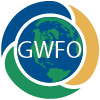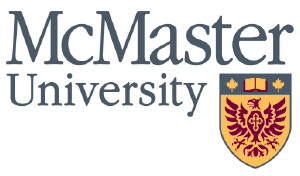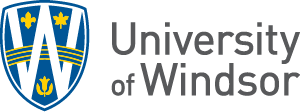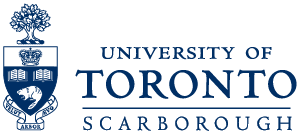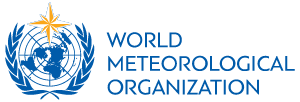About GWFO
Partners and Linkages
Partner Institutions
GWFO is a partnership between the following institutions:
Secretariat for GWFO are hosted at the University of Saskatchewan (lead institution).
Artificial Intelligence for Snow Cover in Mountain Regions (AI4Snow)
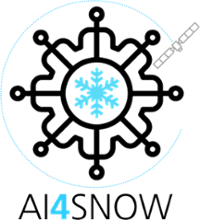
In AI4Snow, we propose a new way of facilitating Artificial Intelligence (AI) methods to achieve three improvements crucial for the application of remote sensing-based snow cover products for hydrological modelling, forecasts, and climate change studies: a) harmonization of the various snow cover parameters originating from different sensors; b) filling of gaps in the data caused by e.g. cloud cover; c) (down-)scaling of all input products to a 100 m grid with daily availability. The AI methods required to help predicting these three developments will be trained based on a high quality, physical-based snow process model. The AI will then be deployed on a data cube consisting of snow cover products derived from various optical satellite data and SAR including Sentinel-1 (wet/dry snow), Sentinel-2 (FSC, 20 m), Sentinel-3 (FSC, 300 m), Landsat-8/9 (FSC, 30 m), land cover information (Forest/Fractional Forest cover, Glaciers), a Digital Elevation Model (DEM), and potentially also gridded meteorological data.
Global Energy and Water Exchanges (GEWEX)

The Global Energy and Water Exchanges (GEWEX) program, a core project of the World Climate Research Programme (WCRP), is dedicated to understanding Earth’s water cycle and energy fluxes at and below the surface and in the atmosphere. GEWEX is a network of scientists gathering information on the global water and energy cycles through research, observations, and science activities, which will help to predict changes in the world’s climate.
GEWEX coordinates science activities to facilitate research into the global water cycle and interactions between the land and the atmosphere. One of the primary influences on humans and the environments they live in, the global water cycle encompasses the continuous journey of water as it moves between the Earth’s surface, the atmosphere, and beneath the Earth’s surface. Clouds, precipitation, water vapor, surface radiation, aerosols, and other phenomena each play a role in the cycle. Many GEWEX scientists conduct research on those and other elements to help fine-tune our understanding of them and their impact on the climate. GEWEX also points out important gaps in knowledge and implements ways to fix those gaps, whether through new studies, reviews of datasets, gatherings of experts, or other opportunities.
International Network for Alpine Research Catchment Hydrology (INARCH)
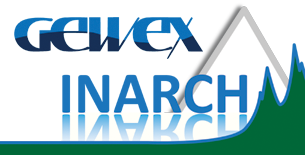
INARCH is a cross-cut project of the GEWEX Hydroclimatology Panel (GHP) to better understand alpine cold regions hydrological processes, improve their prediction, diagnose their sensitivities to global change, and find consistent measurement strategies. Cross-cutting Projects within GHP are focused activities that address specific science questions. Through CCs, GHP achieves a number of objectives: it addresses the GEWEX Science Questions; evaluates and applies the knowledge developed in RHPs; keeps completed RHPs involved; generates interactions between RHPs; and provides a tool for collaboration with other GEWEX Panels and WCRP activities.
World Meteorological Organization
United Nations Initiatives
International Year of Glaciers’ Preservation
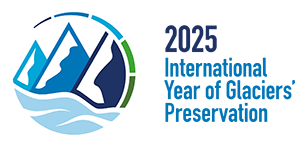
Glaciers are crucial for regulating the global climate and providing freshwater, essential for billions of people. However, due to climate change, driven mainly by human activities since the 1800s, these vital resources are rapidly melting. The United Nations has designated 2025 as the International Year of Glaciers' Preservation to highlight the importance of glaciers and ensure that those relying on them, and those affected by cryospheric processes, receive the necessary hydrological, meteorological, and climate services. These efforts underscore the critical role mountain regions play as a key source of global freshwater and ecosystem services.
Water Action Decade (2018-2028)

In December 2016, the United Nations General Assembly unanimously adopted the resolution "International Decade (2018–2028) for Action – Water for Sustainable Development" to help put a greater focus on water during ten years.
Emphasizing that water is critical for sustainable development and the eradication of poverty and hunger, UN Member States expressed deep concern over the lack of access to safe drinking water, sanitation and hygiene and over water related disasters, scarcity and pollution being exacerbated by urbanization, population growth, desertification, drought and climate change.
The new Decade will focus on the sustainable development and integrated management of water resources for the achievement of social, economic and environmental objectives and on the implementation and promotion of related programmes and projects, as well as on the furtherance of cooperation and partnership at all levels in order to help to achieve internationally agreed water-related goals and targets, including those contained in the 2030 Agenda for Sustainable Development.
Decade of Action for Cryospheric Sciences (2025–2034)
Based on GWFO recommendations, France and Tajikistan proposed expanding the Glacier year to a decade and focussing on science rather than geographical regions (https://www.wcrp-climate.org/news/wcrp-news/2201-un-resolution). The resolution for this Decade was adopted by the UN General Assembly in August 2024. This Decade is now underway and addresses the challenges associated with changes to the cryosphere (snow, ice, permafrost) by advancing related scientific research and monitoring. The GWFO Director prepared an initial science plan for the Decade. UNESCO is the lead agency and it is hoped that this has the impact that the International Hydrological Decade had in the 1960s and 70s.
United Nations Educational, Scientific and Cultural Organization (UNESCO)

UNESCO is the United Nations Educational, Scientific and Cultural Organization. It contributes to peace and security by promoting international cooperation in education, sciences, culture, communication and information. UNESCO promotes knowledge sharing and the free flow of ideas to accelerate mutual understanding and a more perfect knowledge of each other's lives. UNESCO's programmes contribute to the achievement of the Sustainable Development Goals defined in the 2030 Agenda, adopted by the UN General Assembly in 2015.
UNESCO Chair in Mountain Water Sustainability
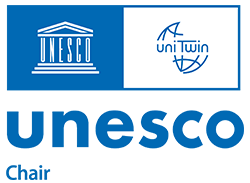
The UNESCO Chair in Mountain Water Sustainability will link Canada, Chile, Nepal and mountain water communities around the world in the quest to achieve sustainability of high mountain waters under the stress of climate change.
This is an opportunity to address the differentiated vulnerabilities and opportunities for mountain water-dependent urban, rural, and Indigenous communities, and their needs for food, energy, livelihoods, health and wellbeing.
The Chair will bridge geographic regions, disciplines, research methods, and voices to better understand changing water resources in high mountain regions and develop solutions towards sustainable water management within the context of sustainable communities and ecosystems.
Intergovernmental Hydrological Programme
The UNESCO Intergovernmental Hydrological Programme (IHP), founded in 1975 following the International Hydrological Decade (1965-1974), is the only intergovernmental cooperation programme of the UN system dedicated to water research and management, and related education and capacity development. It addresses national, regional, and global water challenges, by supporting the development of sustainable and resilient societies.
UNESCO Ecohydrology Demonstration Sites
Several GWFO instrumented sites are designated as new UNESCO Ecohydrology Demonstration Sites: Urban Ecohydrology Observatory – University of Waterloo, and Sibbald Fen – University of Saskatchewan. These sites aim to demonstrate how ecohydrological principles can be applied to achieve sustainable water management, biodiversity conservation, and ecosystem services enhancement. There are about 50 sites worldwide in about 33 countries, and GWFO engages in the network by exchanging best practices, mostly focusing on demonstrating nature-based solutions to water quality improvement and also greenhouse gas sequestration and reductions. GWFO exchanges information with some of the partners in the network that are also involved in these activities.
There are plans being developed to have a yearly virtual conference of all the people involved in the network. For urban sites, there is a conversation going with urban observatories being established in Switzerland and in China, so GWFO is able to show our capabilities and our approaches to running these observatories and then exchanging information with our partners. This UNESCO initiative is very active and provides two-way exchanges with demonstration sites all over the world dealing with similar issues but in very different climatic and socioeconomic conditions.
